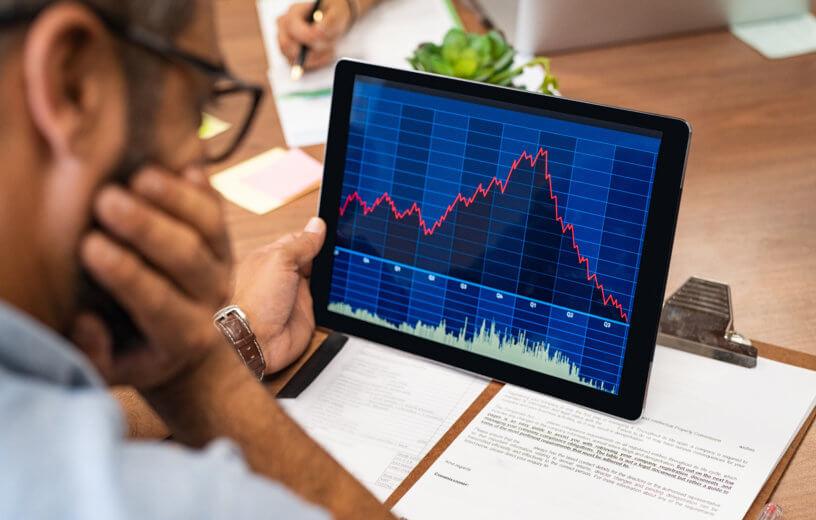SAN DIEGO, Calif. — Who doesn’t want to make a quick buck? 2021 was a banner year for Wall Street investors, with tech stocks in particular enjoying incredible returns. This year, however, hasn’t been as fiscally kind to day-traders. Any would-be investor is always on the lookout for a way to predict how markets will perform – but is that a realistic goal? Is AI options trading really possible?
Scientists from the University of California-San Diego say that while it is possible to attain an edge in the market, it’s never going to be easy and will be virtually impossible to maintain over a long period.
“Essentially, what this work shows is that our financial markets are pretty efficient, thus it’s hard to make outsized and lasting profits from trading,” says Allan Timmermann, a distinguished professor of finance at UC San Diego’s Rady School of Management and the Dr. Harry M. Markowitz Endowed Chair in Finance and Investing, in a university release.
“It’s not impossible, in the sense that market participants—investors, daytraders, hedge funds—are constantly on the lookout for predictable patterns that they can exploit through their trading activities. There are some corners of the market where there is some predictability that can be exploited, but since everybody’s looking for it, the advantages of finding it are short-lived,” he explains.
When you see a trend, everyone else sees it too
The study explains that on Wall Street there are often “pockets,” or short time periods of significant predictability, followed by longer periods of little to no predictability. When a predictable financial pattern does appear, it usually doesn’t last very long because so many investors will identify the pattern and react accordingly. In this sense, researchers say predictable patterns in the market are “self-extinguishing.”
On a more detailed level, this research backs up these claims in an empirical manner via a flexible time-varying parameter model that tracked how pockets of return predictability appear and vanish.
“Everyone’s looking for valuable information sources and competition is fierce,” Prof. Timmerman adds. “If you expect predictable results and stable performance, you’re likely to be disappointed sooner or later. Professional investors like hedge fund managers can sometimes outperform the market, but typically not for long. There’s a reason funds state that past performance is no guarantee for future performance.”

Impossible to predict the unpredictable
Investment managers often employ outlandish tactics — such as analyzing satellite pictures of Home Depot parking lots to predict the company’s quarterly earnings — to try and get a read on a stock’s outlook. Certain investment companies have even used helicopters to assess the level of oil in various strategic reserves to help estimate how much oil they’ll release and the subsequent impact on oil prices.
Such strategies may sound wild, but they can produce results in the short-term. Again, though, it doesn’t take long for other investment groups to recognize what’s going on and adapt.
“It’s like playing peek-a-boo with the markets,” Prof. Timmermann comments. “Now you see it, now you don’t. All the funds, all the investors and their owners are looking for the same weak signals that will help them predict future prices. If the signal was too strong, everyone would exploit it and everyone would become wealthy very quickly. In reality, having an edge in financial markets is very hard to keep up because of the free-flowing capital and the strong competition.”
In summation, study authors say financial markets may be efficient, but they’re certainly not infallible. No one can predict a global pandemic like COVID-19 or forecast with any confidence how long the war in Ukraine will last. There’s simply no financial crystal ball out there capable of seeing into the future.
“No one has good answers to these questions and so financial markets have to process new information just like all of us,” Prof. Timmerman concludes. “This learning process can give rise to predictable patterns, exactly because each episode has some uniqueness and is never a replica of the past.”
The study is published in The Journal of Finance.
